On 26 November 2021, the Quirinal Treaty between France and Italy was concluded at the Quirinal Palace in Rome.
A bilateral agreement to strengthen diplomatic relations between France and Italy has been designed since 2017 by former Italian Prime Minister Paolo Gentiloni. However, the discussions only took place after the anti-Macron wave of 2019 (the yellow vest protests against the high fuel tax) and materialized with the announcement of Angela Merkel’s retirement, after 16 years in German power.
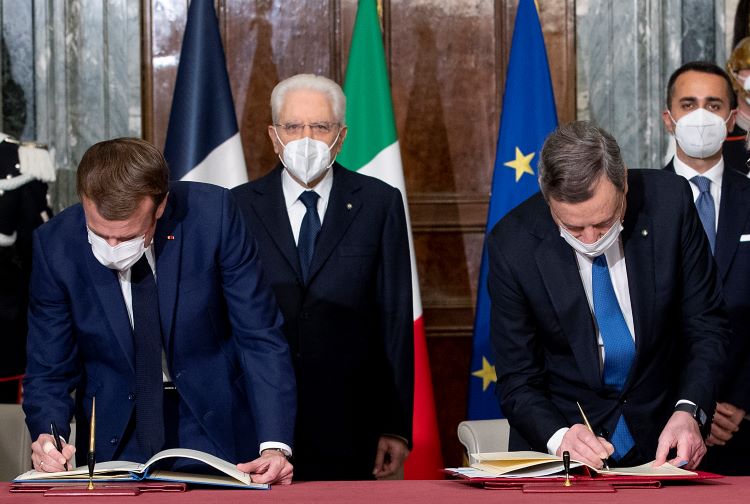
What is the Quirinal Treaty between France and Italy?
Following the same basis as the Elysée Treaty between France and Germany, this Italian-French agreement is a deepening of relations between nations in diplomatic affairs.
The agreement contains 13 clauses, with the combination of annual meetings of the Councils of Ministers of the two countries in the constant search for a joint position in international entities such as the European Union (EU), the UN and the World Bank.
In addition, there will be the creation of the Italy-France Defense and Security Council, which will bring together the foreign and defense ministers of the countries and facilitate the transit of military forces in these territories. The aim is not only to form a strong base for countries, but also for the EU as a whole, seeking to consolidate it as a leading player in NATO.
There are also joint development agreements, whether industrial, educational or research. With biannual meetings between the ministers of the University and Research of Italy and France, and a great interest in developing the industrial field of the European Union based on these powers.
In the political field outside the EU, both countries seek an expansion in immigration control policies and actions in the Mediterranean.
The Angela Merkel Factor
The big point is that since England’s departure from the European Union, the economic and political power of the organization has focused on Germany and France. Not for nothing did these two nations already have a long-standing agreement on closer relations, the 1963 Elysée Treaty, which made it easier to restore the post-Brexit stability.
Germany and France functioned as “informal leaders” of the European Union, but the retirement of former Chancellor Angela Merkel changed the basis of diplomatic relations. His tenure, totaling 16 years in German political life, gave room for deep and well-established relations, but his departure and the new government of Olaf Scholz changed the game.
The Quirinal Treaty between France and Italy represents not only an attempt at further democratic development of the EU, but also a way to re-establish the economic power of the organization’s second and third economic powers, respectively.
It is a way for France to consolidate itself as leader and Italy to occupy the vacuum that German uncertainty leaves.
How this will influence decision-making and actual leadership in the European Union
The rotating presidency of the European Union on 1 January 2022 will be with France for 6 months.
The Treaty of Quirinal allows Italian interests to be safeguarded, allowing their growth as a political actor. But it also guarantees support in the decisions taken during this period.
Critics point out that there is a certain Italian insecurity in making this Quirinal Treaty, since it itself has no agreements with the Germans in that structure. So what there is is a triangle of relations but without the Italy-Germany side.
France thus has a treaty with the other two major European powers, establishing alliance with the major players in the same period that will be in the main seat of the European Union.
The Quirinal Treaty consolidated a long-standing relationship between the two nations, but what is expected is a more advanced growth of France and Italy to occupy the space that Germany possessed in decision-making within the European Union.

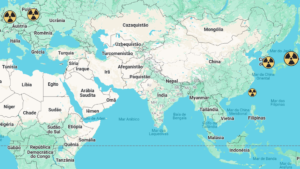

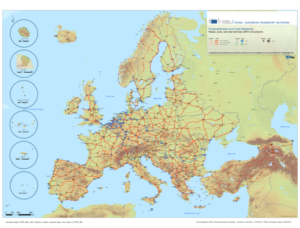
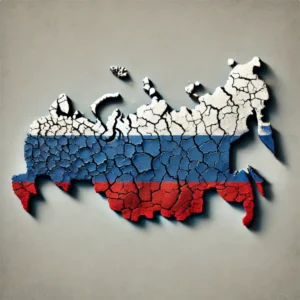
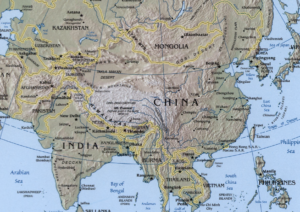





[…] various internal and external reasons in the international context. Since the COVID-19 pandemic, Angela Merkel’s exit from Germany and Chinese economic growth, there is a need for greater economic, energy, and political […]
[…] formal alliance agreement, such as Quirinal Treaty, do not necessarily concern the relations of the Spheres of Influence and power. Influence […]
[…] relations with Germany still changing after the departure of Angela Merkel and the possession of Olaf Scholz. Polish Prime Minister Mateusz Morawiecki hopes that the new […]
[…] Serbia and Croatia. Prime Minister Viktor Orbán was highly critical of the policy of discharging ex-chanceler Angela Merkel, and decreased from 170,000 refugees in 2015 to only 3700 in […]